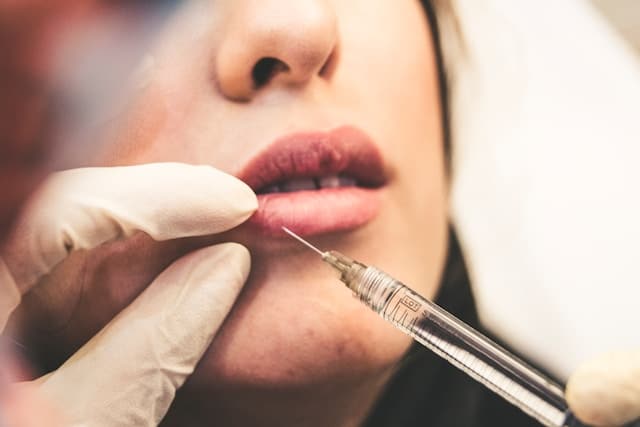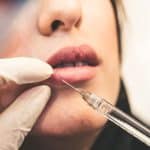As you all know, our bodies are complex ecosystems, home to trillions of microbes that inhabit our gut and skin. These microscopic organisms, collectively known as our microbiome, play a crucial role in our health and wellbeing. And it’s not just about digestion or skin health. Scientists are uncovering fascinating links between our gut and skin – a connection known as the “gut-skin axis”.
Today, we are diving deep into the implications of the gut-skin axis on dermatological health. This complex relationship between the gut and skin microbiota is a critical area of study that has profound implications for conditions like psoriasis, acne, and dermatitis, among others.
In the same genre : Can Aromatherapy Be Used as a Complementary Therapy in Cancer Care?
The Intricate Connection Between Gut and Skin
First, let’s understand the gut-skin axis. A number of scholarly articles and studies available on PubMed and Google Scholar present compelling evidence of a direct relationship between gut health and skin health. Our intestinal microbiome influences skin health by modulating our immune response and inflammation.
Gut microbes produce essential nutrients and metabolites that, by way of the bloodstream, can reach our skin cells. Imbalances in the gut microbiota, often resulting in a condition known as dysbiosis, can lead to a range of skin conditions. The influence of probiotics on the gut microbiome is also worthy of note. By modulating the gut microbiota, probiotics can improve skin health.
Topic to read : How to Use Foam Rolling for Myofascial Release in Athletes?
The Gut-Skin Axis and Inflammatory Skin Conditions
The gut-skin axis seems to have a significant impact on inflammatory skin conditions like psoriasis and dermatitis. These conditions are characterized by an overactive immune response that leads to inflamed and irritated skin. Studies indicate that people with these conditions often have altered gut microbiota.
Psoriasis patients, as per multiple articles on PubMed and CrossRef, show a decrease in gut bacterial diversity. This decrease is a crucial finding as diversity in our gut microbiota plays a key role in maintaining a healthy immune system. Changes in the gut microbiome can cause our immune cells to overreact, leading to skin inflammation in psoriasis.
Similarly, in patients with dermatitis, an imbalance in gut microbiota is often observed. This imbalance can lead to increased intestinal permeability, allowing harmful bacteria and their toxins to enter the bloodstream and cause inflammation.
Acne and the Gut-Skin Axis
Acne, a widespread dermatological condition, is another area where the gut-skin axis plays a vital role. Acne is caused by the overproduction of sebum and the buildup of bacteria, leading to inflamed and blocked pores. However, studies suggest that the underlying cause of acne may be more than skin-deep.
Research indicates a possible correlation between acne and gut health. For instance, a study found that acne patients had a significantly different gut microbiota composition compared to individuals without acne. This altered microbiota can influence the skin’s sebum production and the immune response to acne-causing bacteria.
Moreover, studies have shown that certain probiotics can help manage acne by reducing inflammation and limiting the growth of acne-caicusing bacteria.
The Potential of Probiotics in Dermatological Health
Probiotics, beneficial bacteria that can help balance the gut microbiome, have shown promise in managing dermatological conditions. Numerous studies suggest that oral and topical probiotics can have a beneficial effect on skin health.
Oral probiotics can improve gut health, reduce inflammation, and modulate the immune response, all of which can benefit the skin. For instance, certain probiotics have shown potential in managing acne and psoriasis.
Topical probiotics, applied directly onto the skin, can also have beneficial effects. They can help maintain the skin’s barrier function, reduce skin inflammation, and prevent harmful bacteria from colonizing the skin.
The potential of probiotics in dermatological health is an exciting area of research. However, it’s essential to remember that probiotics are not a one-size-fits-all solution. The efficacy of probiotics can depend on various factors, such as the type of probiotic, the dosage, and the individual’s unique microbiota.
While it’s clear that our gut health has a profound impact on our skin health, more research is needed to fully understand this complex relationship. As scientists continue to unravel the intricacies of the gut-skin axis, we can expect to see exciting developments in the field of dermatology and overall health maintenance.
The Gut-Skin Axis: A Role in Autoimmune Skin Disorders
Shedding light on another aspect of dermatological health, autoimmune skin disorders like alopecia areata, may also be influenced by the gut-skin axis. Alopecia areata is an autoimmune disease where the immune system mistakenly attacks healthy hair follicles, leading to hair loss. As per studies available on scholar CrossRef and Google Scholar, imbalances in the gut microbiome may play a role in triggering this immune response.
Alopecia areata patients, similar to psoriasis patients, show an altered gut microbiota. The gut microbiome, which is pivotal in modulating our immune system, could be triggering the immune response against the hair follicles. This is evident from studies where alopecia areata patients show a decrease in gut bacterial diversity, a critical factor in maintaining a healthy immune system.
The gut microbiota could be influencing the initiation, progression, and severity of this autoimmune disorder. Hence, modulating the gut microbiota through probiotics could potentially help manage alopecia areata. However, more research is required to substantiate this relationship and the potential therapeutic role of probiotics in the management of alopecia areata.
Impact of the Gut-Skin Axis on Atopic Dermatitis
Atopic dermatitis, an inflammatory skin condition characterized by itchy, red skin, is another dermatological condition that may be influenced by the gut-skin axis. Research findings available on CrossRef PubMed indicate a strong correlation between gut health and atopic dermatitis.
Changes in the gut microbiome can affect the immune response, leading to skin inflammation in atopic dermatitis. Moreover, patients with atopic dermatitis often show an imbalance in gut microbiota. This dysbiosis can lead to increased intestinal permeability, allowing harmful bacteria and their toxins to enter the bloodstream and cause inflammation.
Studies have shown that certain probiotics can help manage atopic dermatitis. These beneficial bacteria can reduce skin inflammation, improve the skin barrier function, and limit the colonization of harmful bacteria on the skin. Hence, optimizing gut health through probiotics could potentially help manage atopic dermatitis.
Conclusion
The gut-skin axis, a fascinating field of study, paints a clear picture of how our gut health directly influences our skin health. The gut microbiome, home to trillions of microbes, plays a pivotal role in maintaining our immune system, reducing inflammation, and providing essential nutrients for our skin cells. Imbalances in this intricate ecosystem can lead to various dermatological conditions, including psoriasis, acne, alopecia areata, and atopic dermatitis.
However, the potential of probiotics in managing these conditions offers a ray of hope. These beneficial bacteria can improve gut health, modulate the immune response, and maintain skin barrier function, thus potentially improving skin health.
But the gut-skin axis is a complex relationship. The efficacy of probiotics can vary depending on an individual’s unique microbiota, the type of probiotic used, and the dosage. Hence, more research is needed to fully understand this complex relationship and harness the potential of probiotics in dermatological health. As we dive deeper into the world of the gut-skin axis, the future of dermatology shines bright, promising more holistic and personalized treatments for various skin conditions.






